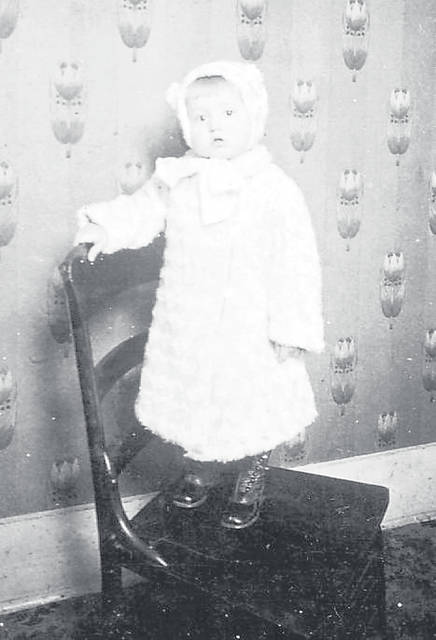
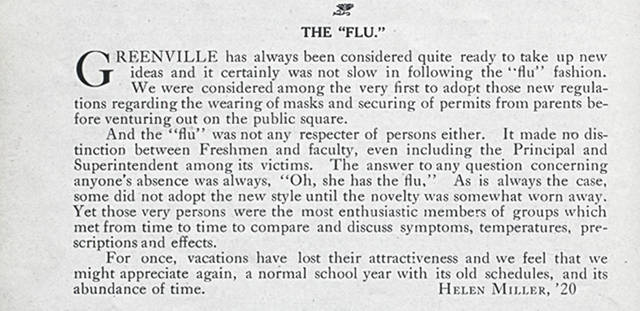

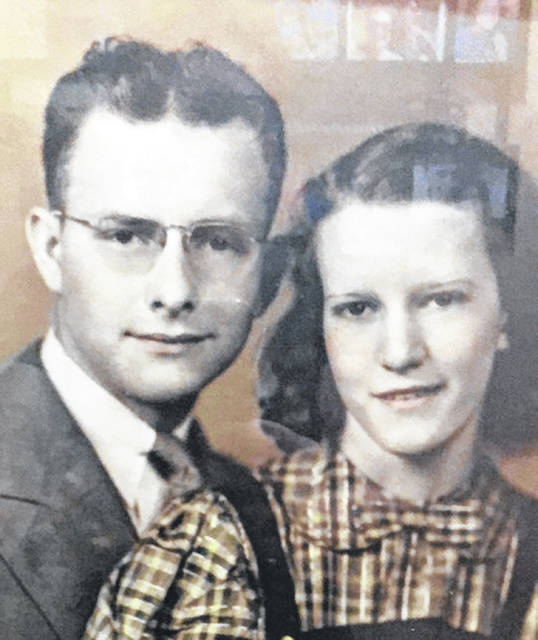
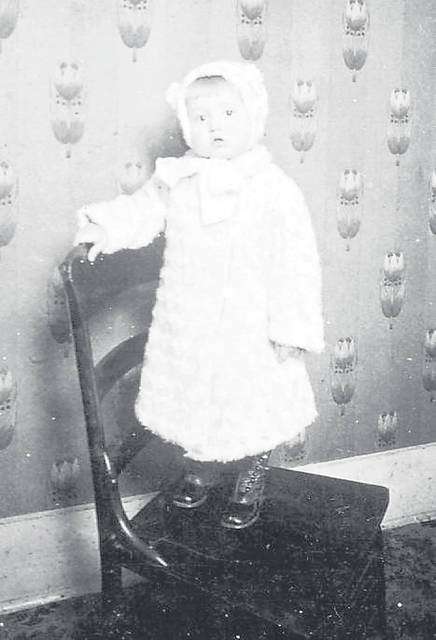
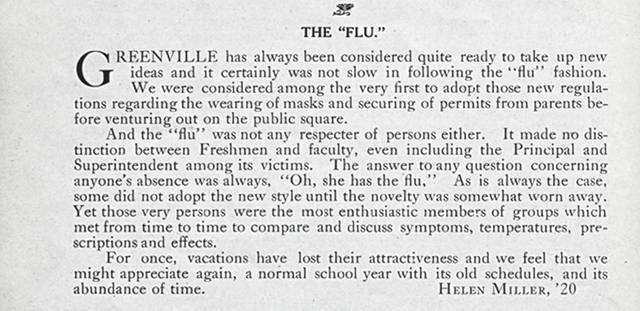
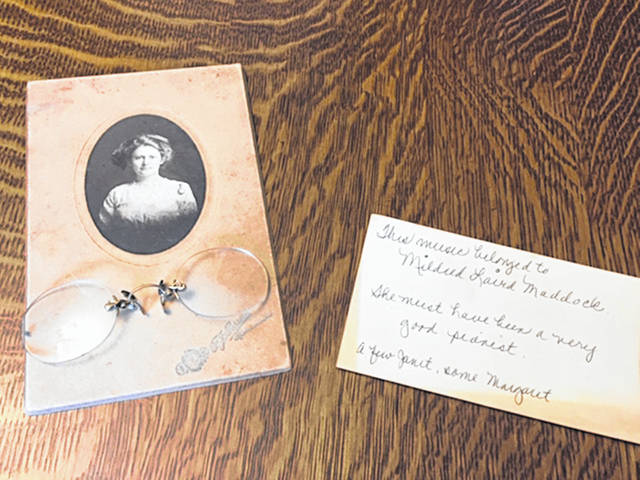
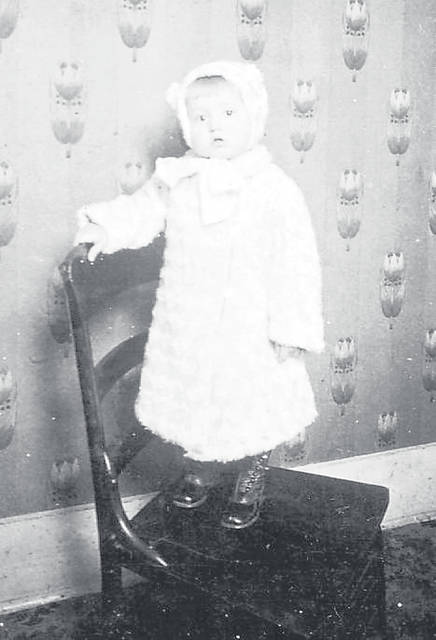
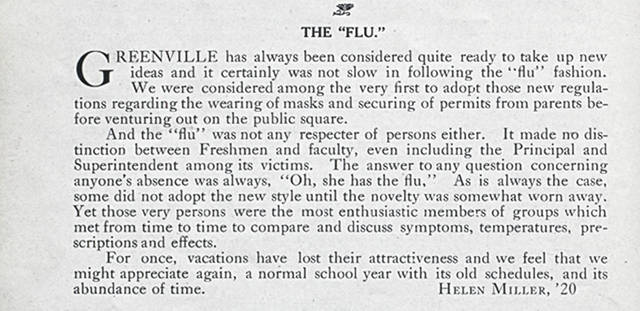
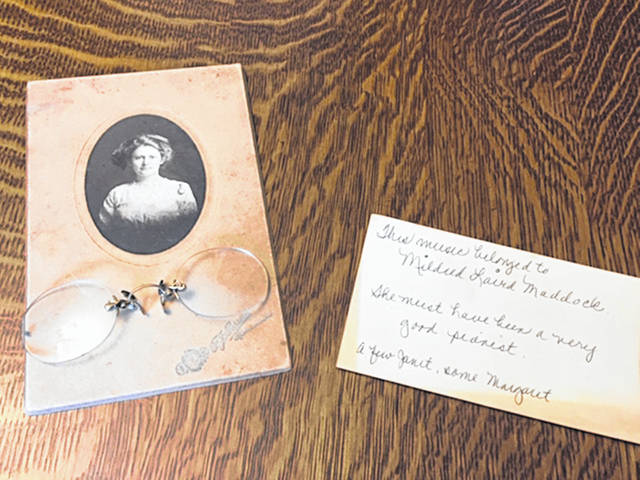
GREENVILLE — A conversation between three area family members provides some historical context regarding today’s novel coronavirus (COVID-19) and the 1918 influenza pandemic, sometimes referred to as the Spanish Flu.
It was via Facebook chat that Rachel Brock from the Greenville Public Library Genealogy Department, her mother, Karen Brock, and her aunt, Sherri Stump Linder, shared a story of how the latter two’s grandmother along with a baby died from the flu in Jay County, Ind. in 1918.
Sisters Karen Brock and Linder recalled how their father, Donald Stump, often spoke of his mother’s passing and that of his baby sister.
“I remember my dad saying that his mother and the baby died of influenza, and they buried them together,” wrote Linda. “Dad was four at the time.”
According to the 1920 census, wrote Rachel, the surviving children’s ages were two, five, seven, 10, 12, 14, and 15 years old.
“I also remember him saying that the doctor came to the house and told Grandpa that there was nothing he could do,” continued Linder with the sisters sharing how their father talked about it a lot. How he was raised by his three older sisters and went on to live day-by-day, in the moment, and never told anyone goodbye but said, “I’ll see you.”
“He never questioned anything that happened. He just always trusted that God would take care of him,” wrote Linder. “And he and my mother raised all of us the same way.”
Both Karen Brock and Linder grew up to be nurses. The former now retired, with the latter celebrating 35 years as an ER nurse.
Linder wrote how their mother had cancer when she was 10 and, “I knew from that time on that I wanted to be a nurse. She had such wonderful care and went on to live a long life. She passed in 2009. She was 87.”
When asked if they noted any parallels, similarities, worries about the current situation we are facing with COVID-19, Karen states her heritage keeps her from being fearful.
“Also, I have lived through the poliovirus of the ’50s and been a nurse during the AIDs crisis of the ’90s. Our faith is sustaining our families,” wrote Karen.
Rachel Brock provided more insight on the time via copies of the local newspaper. A variety of stories showcase how area citizens handled the ban on schools, churches, and public assemblies in 1918. An entry in the Greenville Democrat dated Oct. 30 reads, “Let us possess ourselves with patience if the ban will help in relieving us of this disease.”
A copy of a page in the 1919 Chief yearbook reveals how local student, Helen Miller, class of 1920, felt in regards to the flu. “Greenville has always been considered quite ready to take up new ideas, and it certainly was not slow in following the flu fashion.”
Miller goes on to share how they were among the first to adopt new regulations regarding masks and securing permits from parents before going outside.
The student noted how a few adopted the practice after the curve and appreciated the return to routine, stating, “For once, vacations have lost their attractiveness.”
Annette Stewart, with the Arcanum Wayne Trail Historical Society, also shared perspectives from the time with information from the Epidemic Checked: A Chronicle of the 1918 Influenza Pandemic in Dayton, Ohio, by Jackie Frederick.
Similar to COVID-19, Americans were aware of the flu, but it appeared to be affecting those mostly overseas and US troops. When it began to affect those locally, people took notice, and the necessary steps were taken. Those included what Frederick writes as “citizens’ readiness to make sacrifices and to promptly volunteer.”
Stewart also provided information on a local woman, Janet Brown Rhoades, who lost a grandmother, Mildred Elizabeth Laird Maddock, to the Spanish Flu in 1918.
Maddock was a pianist, and her sheet music, along with other memorabilia, was to be on display at the Arcanum Public Library in May. However, like many area businesses, the public library is closed due to the novel coronavirus.
More information regarding Maddock can be viewed online via a blog posted for Friday, March 20, at awths.org.
Karen Besecker, a research specialist at the Garst Museum, provided information from the time, as well, including her grandparents, who had a son, Orville Cook, die from influenza in 1918. He was five years old.
“The entire family was ill with the flu and in quarantine,” wrote Besecker providing a newspaper clipping of obituary and a photo. She noted they implemented many of the same strategies being used today to try to control the spread of the virus.
However, “The biggest difference between then and now is the advancement in medical care,” continued Besecker, “and the knowledge they learned from that pandemic.”








